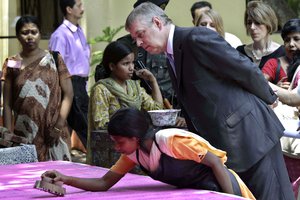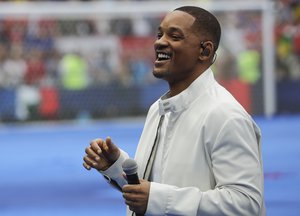-
Ted Koch celebration of life
published: 19 Nov 2014
-
Simple laptop hack with One Love Ted Koch
published: 30 Apr 2019
-
The scientific pursuit of consiousness: Christof Koch at TEDxRainier
Does your dog experience conscious thought? What about your neighbor? How can you be sure? This is a difficult challenge for researchers, given the need for objectivity. Neuroscientist Christof Koch explores the relationship between brains, behavior, and consciousness.
Born in the American Midwest, Christof Koch grew up in Holland, Germany, Canada, and Morocco. He studied Physics and Philosophy at the University of Tübingen in Germany and was awarded his Ph.D. in Biophysics in 1982. Following four years at MIT, Christof joined the California Institute of Technology as a Professor in Biology and Engineering. After a quarter of a century, Christof left academia to become the Chief Scientific Officer at the not-for-profit Allen Institute for Brain Science in Seattle. He is leading a ten yea...
published: 23 Jan 2014
-
Facing a health challenge head-on | Jonathan Koch | TEDxOaksChristianSchool
A coma is the least peaceful place you can be. Jonathan Koch learned this firsthand after being in a coma for several weeks after a near-death illness in 2015. When he woke up, he realized that he had lost all four of his limbs. He underwent a hand transplant surgery in late 2016 and has had one of the fastest recoveries ever for a surgery of this type. He made the conscious decision to survive and attack the challenge of a long road to recovery.
JONATHAN KOCH has been the President and Chief Creative Officer for Asylum Entertainment. He has pitched Hollywood television and movie ideas for many years. In 2015, he experienced a sudden illness that affected his entire body and due to this illness, has recently been the recipient of a hand transplant via cutting edge technology. ...
published: 14 Mar 2017
-
21st Century Education: The Science of Understanding | Tom Koch | TEDxGettysburgCollege
Unsatisfied by a model of education defined by standardized tests, middle school educator Tom Koch decided to do more to connect with his students and allow them to learn while exploring their identities. Recognizing that many of them experienced the fear of missing out, Koch began an in-house publishing network to encourage students to experiment with poetry and writing in their free time, giving them a new way to express themselves.
Thomas Koch has been teaching public school children for the last eighteen years. Among his many passions, poetry remains his favorite endeavor. As a published poet, Thomas routinely incorporates personal experience and authentic opportunities in the classroom. He believes that affording students an opportunity to write beyond curricular expectations builds ...
published: 11 May 2016
-
Christof Koch: The Future of Consciousness - Schrödinger at 75: The Future of Biology
Koch joined the Allen Institute as Chief Scientific Officer in 2011 and became President in 2015. He received his baccalaureate from the Lycée Descartes in Rabat, Morocco, his MSc in physics from the University of Tübingen in Germany and his PhD from the Max-Planck-Institut für Biologische Kybernetik, Tübingen. Subsequently, he spent four years as a postdoctoral fellow in the Artificial Intelligence Laboratory and the Brain and Cognitive Sciences Department at the Massachusetts Institute of Technology. From 1987 until 2013, he was a professor at the California Institute of Technology (Caltech) in Pasadena, from his initial appointment as Assistant Professor, Division of Biology and Division of Engineering and Applied Sciences in 1986, to his final position as Lois and Victor Troendle Profe...
published: 20 Nov 2018
-
How a few scientists transformed the way we think about disease - Tien Nguyen
View full lesson: http://ed.ted.com/lessons/how-a-few-scientists-transformed-the-way-we-think-about-disease-tien-nguyen
This video was created with support from the U.S. Office of Research Integrity: http://ori.hhs.gov.
For several centuries, people though diseases were caused by wandering clouds of poisonous vapor. We now know that this theory is pretty ridiculous, and that diseases are caused by specific bacteria. But how did we get to this new idea of germ theory? Tien Nguyen describes the work of several scientists who discredited a widely accepted theory in a way that was beneficial to human health.
Lesson by Tien Nguyen, animation by Brandon Denmark.
published: 20 Oct 2015
-
Koch Campus | Schuyler Krauss | TEDxKU
Citing a rare and hard to find speech given by Charles Koch in the 1970s, Schuyler outlays how the Kochs have used their money to influence public thought. Using the University of Kansas as a case study, Schuyler details the larger problems of the corporate influence of higher education.
As the founder and president of Student for a Sustainable Future, Schuyler Krauss has fought for sustainability in both environmental and social contexts. Schuyler has been at the center of the national media attention around a duplicitous donation by the Koch Brothers to the University of Kansas. The day after President Obama visited campus, Rachel Maddow personally mentioned Schuyler and spent a whole segment of her show detailing the issue she was fighting.
This talk was given at a TEDx event using ...
published: 05 Jun 2015
-
Richard Koch on the 80 / 20 Principle
Distinguished author, business strategist, and investor speaks to the Autodesk company about the 80 / 20 Principle
published: 13 Jul 2011
20:16
The scientific pursuit of consiousness: Christof Koch at TEDxRainier
Does your dog experience conscious thought? What about your neighbor? How can you be sure? This is a difficult challenge for researchers, given the need for obj...
Does your dog experience conscious thought? What about your neighbor? How can you be sure? This is a difficult challenge for researchers, given the need for objectivity. Neuroscientist Christof Koch explores the relationship between brains, behavior, and consciousness.
Born in the American Midwest, Christof Koch grew up in Holland, Germany, Canada, and Morocco. He studied Physics and Philosophy at the University of Tübingen in Germany and was awarded his Ph.D. in Biophysics in 1982. Following four years at MIT, Christof joined the California Institute of Technology as a Professor in Biology and Engineering. After a quarter of a century, Christof left academia to become the Chief Scientific Officer at the not-for-profit Allen Institute for Brain Science in Seattle. He is leading a ten year, large-scale, high through-put effort to build brain observatories to map, analyze, and understand the cerebral cortex. He loves dogs, climbing, biking in Seattle, and long-distance running.
Christof has authored more than 300 scientific papers and articles, eight patents, and five books concerned with the way neurons process information and the neuronal and computational basis of visual perception, selective attention, and consciousness. Together with his long-time collaborator, Francis Crick, Christof pioneered the scientific study of consciousness. His latest book is Consciousness—Confessions of a Romantic Reductionist.
This talk was given November 9, 2013 in Seattle at TEDxRainier, a local TEDx event, produced independently of the TED Conferences.
TEDx is a program of local, self-organized events that bring people together to share a TED-like experience. At a TEDx event, TEDTalks video and live speakers combine to spark deep discussion and connection in a small group. These local, self-organized events are branded TEDx, where x = independently organized TED event. The TED Conference provides general guidance for the TEDx program, but individual TEDx events are self-organized.* (*Subject to certain rules and regulations)
https://wn.com/The_Scientific_Pursuit_Of_Consiousness_Christof_Koch_At_Tedxrainier
Does your dog experience conscious thought? What about your neighbor? How can you be sure? This is a difficult challenge for researchers, given the need for objectivity. Neuroscientist Christof Koch explores the relationship between brains, behavior, and consciousness.
Born in the American Midwest, Christof Koch grew up in Holland, Germany, Canada, and Morocco. He studied Physics and Philosophy at the University of Tübingen in Germany and was awarded his Ph.D. in Biophysics in 1982. Following four years at MIT, Christof joined the California Institute of Technology as a Professor in Biology and Engineering. After a quarter of a century, Christof left academia to become the Chief Scientific Officer at the not-for-profit Allen Institute for Brain Science in Seattle. He is leading a ten year, large-scale, high through-put effort to build brain observatories to map, analyze, and understand the cerebral cortex. He loves dogs, climbing, biking in Seattle, and long-distance running.
Christof has authored more than 300 scientific papers and articles, eight patents, and five books concerned with the way neurons process information and the neuronal and computational basis of visual perception, selective attention, and consciousness. Together with his long-time collaborator, Francis Crick, Christof pioneered the scientific study of consciousness. His latest book is Consciousness—Confessions of a Romantic Reductionist.
This talk was given November 9, 2013 in Seattle at TEDxRainier, a local TEDx event, produced independently of the TED Conferences.
TEDx is a program of local, self-organized events that bring people together to share a TED-like experience. At a TEDx event, TEDTalks video and live speakers combine to spark deep discussion and connection in a small group. These local, self-organized events are branded TEDx, where x = independently organized TED event. The TED Conference provides general guidance for the TEDx program, but individual TEDx events are self-organized.* (*Subject to certain rules and regulations)
- published: 23 Jan 2014
- views: 67247
13:02
Facing a health challenge head-on | Jonathan Koch | TEDxOaksChristianSchool
A coma is the least peaceful place you can be. Jonathan Koch learned this firsthand after being in a coma for several weeks after a near-death illness in 2015....
A coma is the least peaceful place you can be. Jonathan Koch learned this firsthand after being in a coma for several weeks after a near-death illness in 2015. When he woke up, he realized that he had lost all four of his limbs. He underwent a hand transplant surgery in late 2016 and has had one of the fastest recoveries ever for a surgery of this type. He made the conscious decision to survive and attack the challenge of a long road to recovery.
JONATHAN KOCH has been the President and Chief Creative Officer for Asylum Entertainment. He has pitched Hollywood television and movie ideas for many years. In 2015, he experienced a sudden illness that affected his entire body and due to this illness, has recently been the recipient of a hand transplant via cutting edge technology. Jonathan continues to work as a producer while he works on his recovery.
This talk was given at a TEDx event using the TED conference format but independently organized by a local community. Learn more at http://ted.com/tedx
https://wn.com/Facing_A_Health_Challenge_Head_On_|_Jonathan_Koch_|_Tedxoakschristianschool
A coma is the least peaceful place you can be. Jonathan Koch learned this firsthand after being in a coma for several weeks after a near-death illness in 2015. When he woke up, he realized that he had lost all four of his limbs. He underwent a hand transplant surgery in late 2016 and has had one of the fastest recoveries ever for a surgery of this type. He made the conscious decision to survive and attack the challenge of a long road to recovery.
JONATHAN KOCH has been the President and Chief Creative Officer for Asylum Entertainment. He has pitched Hollywood television and movie ideas for many years. In 2015, he experienced a sudden illness that affected his entire body and due to this illness, has recently been the recipient of a hand transplant via cutting edge technology. Jonathan continues to work as a producer while he works on his recovery.
This talk was given at a TEDx event using the TED conference format but independently organized by a local community. Learn more at http://ted.com/tedx
- published: 14 Mar 2017
- views: 9685
7:33
21st Century Education: The Science of Understanding | Tom Koch | TEDxGettysburgCollege
Unsatisfied by a model of education defined by standardized tests, middle school educator Tom Koch decided to do more to connect with his students and allow the...
Unsatisfied by a model of education defined by standardized tests, middle school educator Tom Koch decided to do more to connect with his students and allow them to learn while exploring their identities. Recognizing that many of them experienced the fear of missing out, Koch began an in-house publishing network to encourage students to experiment with poetry and writing in their free time, giving them a new way to express themselves.
Thomas Koch has been teaching public school children for the last eighteen years. Among his many passions, poetry remains his favorite endeavor. As a published poet, Thomas routinely incorporates personal experience and authentic opportunities in the classroom. He believes that affording students an opportunity to write beyond curricular expectations builds meaningful relationships. In addition to poetry, Thomas enjoys antique homes and fine woodworking. As much as Thomas is drawn to old school techniques, he also values the benefits of progressive thinking. He is currently the webmaster of his middle school in Wilton, CT and is proud to be a Google agent of change. He is the father of two girls and lives in Connecticut with his wife of fifteen years.
This talk was given at a TEDx event using the TED conference format but independently organized by a local community. Learn more at http://ted.com/tedx
https://wn.com/21St_Century_Education_The_Science_Of_Understanding_|_Tom_Koch_|_Tedxgettysburgcollege
Unsatisfied by a model of education defined by standardized tests, middle school educator Tom Koch decided to do more to connect with his students and allow them to learn while exploring their identities. Recognizing that many of them experienced the fear of missing out, Koch began an in-house publishing network to encourage students to experiment with poetry and writing in their free time, giving them a new way to express themselves.
Thomas Koch has been teaching public school children for the last eighteen years. Among his many passions, poetry remains his favorite endeavor. As a published poet, Thomas routinely incorporates personal experience and authentic opportunities in the classroom. He believes that affording students an opportunity to write beyond curricular expectations builds meaningful relationships. In addition to poetry, Thomas enjoys antique homes and fine woodworking. As much as Thomas is drawn to old school techniques, he also values the benefits of progressive thinking. He is currently the webmaster of his middle school in Wilton, CT and is proud to be a Google agent of change. He is the father of two girls and lives in Connecticut with his wife of fifteen years.
This talk was given at a TEDx event using the TED conference format but independently organized by a local community. Learn more at http://ted.com/tedx
- published: 11 May 2016
- views: 2376
48:04
Christof Koch: The Future of Consciousness - Schrödinger at 75: The Future of Biology
Koch joined the Allen Institute as Chief Scientific Officer in 2011 and became President in 2015. He received his baccalaureate from the Lycée Descartes in Raba...
Koch joined the Allen Institute as Chief Scientific Officer in 2011 and became President in 2015. He received his baccalaureate from the Lycée Descartes in Rabat, Morocco, his MSc in physics from the University of Tübingen in Germany and his PhD from the Max-Planck-Institut für Biologische Kybernetik, Tübingen. Subsequently, he spent four years as a postdoctoral fellow in the Artificial Intelligence Laboratory and the Brain and Cognitive Sciences Department at the Massachusetts Institute of Technology. From 1987 until 2013, he was a professor at the California Institute of Technology (Caltech) in Pasadena, from his initial appointment as Assistant Professor, Division of Biology and Division of Engineering and Applied Sciences in 1986, to his final position as Lois and Victor Troendle Professor of Cognitive & Behavioral Biology. Koch has published extensively, and his writings and interests integrate theoretical, computational and experimental neuroscience. His most recent book, Consciousness: Confessions of a Romantic Reductionist, blends science and memoir to explore topics in discovering the roots of consciousness. Stemming in part from a long-standing collaboration with the late Nobel Laureate Francis Crick, Koch authored the book The Quest for Consciousness: A Neurobiological Approach. He has also authored the technical books Biophysics of Computation: Information Processing in Single Neurons and Methods in Neuronal Modeling: From Ions to Networks, and served as editor for several books on neural modeling and information processing. Koch’s research addresses scientific questions using a widely multidisciplinary approach. His research interests include elucidating the biophysical mechanisms underlying neural computation, understanding the mechanisms and purpose of visual attention, and uncovering the neural basis of consciousness and the subjective mind.
http://www.tcd.ie/
https://wn.com/Christof_Koch_The_Future_Of_Consciousness_Schrödinger_At_75_The_Future_Of_Biology
Koch joined the Allen Institute as Chief Scientific Officer in 2011 and became President in 2015. He received his baccalaureate from the Lycée Descartes in Rabat, Morocco, his MSc in physics from the University of Tübingen in Germany and his PhD from the Max-Planck-Institut für Biologische Kybernetik, Tübingen. Subsequently, he spent four years as a postdoctoral fellow in the Artificial Intelligence Laboratory and the Brain and Cognitive Sciences Department at the Massachusetts Institute of Technology. From 1987 until 2013, he was a professor at the California Institute of Technology (Caltech) in Pasadena, from his initial appointment as Assistant Professor, Division of Biology and Division of Engineering and Applied Sciences in 1986, to his final position as Lois and Victor Troendle Professor of Cognitive & Behavioral Biology. Koch has published extensively, and his writings and interests integrate theoretical, computational and experimental neuroscience. His most recent book, Consciousness: Confessions of a Romantic Reductionist, blends science and memoir to explore topics in discovering the roots of consciousness. Stemming in part from a long-standing collaboration with the late Nobel Laureate Francis Crick, Koch authored the book The Quest for Consciousness: A Neurobiological Approach. He has also authored the technical books Biophysics of Computation: Information Processing in Single Neurons and Methods in Neuronal Modeling: From Ions to Networks, and served as editor for several books on neural modeling and information processing. Koch’s research addresses scientific questions using a widely multidisciplinary approach. His research interests include elucidating the biophysical mechanisms underlying neural computation, understanding the mechanisms and purpose of visual attention, and uncovering the neural basis of consciousness and the subjective mind.
http://www.tcd.ie/
- published: 20 Nov 2018
- views: 8751
4:39
How a few scientists transformed the way we think about disease - Tien Nguyen
View full lesson: http://ed.ted.com/lessons/how-a-few-scientists-transformed-the-way-we-think-about-disease-tien-nguyen
This video was created with support fro...
View full lesson: http://ed.ted.com/lessons/how-a-few-scientists-transformed-the-way-we-think-about-disease-tien-nguyen
This video was created with support from the U.S. Office of Research Integrity: http://ori.hhs.gov.
For several centuries, people though diseases were caused by wandering clouds of poisonous vapor. We now know that this theory is pretty ridiculous, and that diseases are caused by specific bacteria. But how did we get to this new idea of germ theory? Tien Nguyen describes the work of several scientists who discredited a widely accepted theory in a way that was beneficial to human health.
Lesson by Tien Nguyen, animation by Brandon Denmark.
https://wn.com/How_A_Few_Scientists_Transformed_The_Way_We_Think_About_Disease_Tien_Nguyen
View full lesson: http://ed.ted.com/lessons/how-a-few-scientists-transformed-the-way-we-think-about-disease-tien-nguyen
This video was created with support from the U.S. Office of Research Integrity: http://ori.hhs.gov.
For several centuries, people though diseases were caused by wandering clouds of poisonous vapor. We now know that this theory is pretty ridiculous, and that diseases are caused by specific bacteria. But how did we get to this new idea of germ theory? Tien Nguyen describes the work of several scientists who discredited a widely accepted theory in a way that was beneficial to human health.
Lesson by Tien Nguyen, animation by Brandon Denmark.
- published: 20 Oct 2015
- views: 488294
15:24
Koch Campus | Schuyler Krauss | TEDxKU
Citing a rare and hard to find speech given by Charles Koch in the 1970s, Schuyler outlays how the Kochs have used their money to influence public thought. Usin...
Citing a rare and hard to find speech given by Charles Koch in the 1970s, Schuyler outlays how the Kochs have used their money to influence public thought. Using the University of Kansas as a case study, Schuyler details the larger problems of the corporate influence of higher education.
As the founder and president of Student for a Sustainable Future, Schuyler Krauss has fought for sustainability in both environmental and social contexts. Schuyler has been at the center of the national media attention around a duplicitous donation by the Koch Brothers to the University of Kansas. The day after President Obama visited campus, Rachel Maddow personally mentioned Schuyler and spent a whole segment of her show detailing the issue she was fighting.
This talk was given at a TEDx event using the TED conference format but independently organized by a local community. Learn more at http://ted.com/tedx
https://wn.com/Koch_Campus_|_Schuyler_Krauss_|_Tedxku
Citing a rare and hard to find speech given by Charles Koch in the 1970s, Schuyler outlays how the Kochs have used their money to influence public thought. Using the University of Kansas as a case study, Schuyler details the larger problems of the corporate influence of higher education.
As the founder and president of Student for a Sustainable Future, Schuyler Krauss has fought for sustainability in both environmental and social contexts. Schuyler has been at the center of the national media attention around a duplicitous donation by the Koch Brothers to the University of Kansas. The day after President Obama visited campus, Rachel Maddow personally mentioned Schuyler and spent a whole segment of her show detailing the issue she was fighting.
This talk was given at a TEDx event using the TED conference format but independently organized by a local community. Learn more at http://ted.com/tedx
- published: 05 Jun 2015
- views: 455
5:35
Richard Koch on the 80 / 20 Principle
Distinguished author, business strategist, and investor speaks to the Autodesk company about the 80 / 20 Principle
Distinguished author, business strategist, and investor speaks to the Autodesk company about the 80 / 20 Principle
https://wn.com/Richard_Koch_On_The_80_20_Principle
Distinguished author, business strategist, and investor speaks to the Autodesk company about the 80 / 20 Principle
- published: 13 Jul 2011
- views: 57380












































